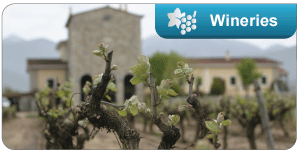Hellenistic times
The end of the Classical period, which was Greek wine’s most illustrious time period, came after the death of Alexander the Great who was one of the greatest military leaders in world history. Not only did he spread Greek civilization to such places as Egypt and India but he also promoted winegrowing colonization. The winegrowing practices of Greece stretched to the far reaches of the East while, the needs of the campaigns of Alexander the Great would encourage the prosperity of winegrowing in the south. His armies had to be supplied with wine which was used not only as tonic and refreshment during a campaign’s hardships but also as a means of “sterilizing” water of dubious purity that the armies would encounter on their marches. Thus, Macedonian ships would carry to the ports the armies would arrive at wine procured on the islands of the southern Aegean, such as Rhodes and Kos, on Cyprus and the coast of Asia Minor. It was on one such island, Lesvos, that Theophrastus was born, a philosopher who wrote what is considered to be the first book on wine. Inevitably, during Hellenistic times (323-146 BC) those areas and islands became major Mediterranean hubs of wine production and commerce. After a series of conflicts, the successors of Alexander the Great divided among them his vast kingdom, each taking a part. That of Alexandria, Egypt, was the most significant one and it engaged in noteworthy wine production. In the meantime, in Greece and, more specifically, in Macedonia, production of notable wines continued as it did in other areas but with none of the prestige of the past. What did flourish, however, was the art of “wine mosaics”.


